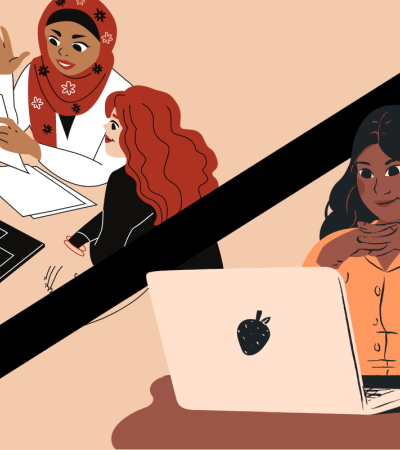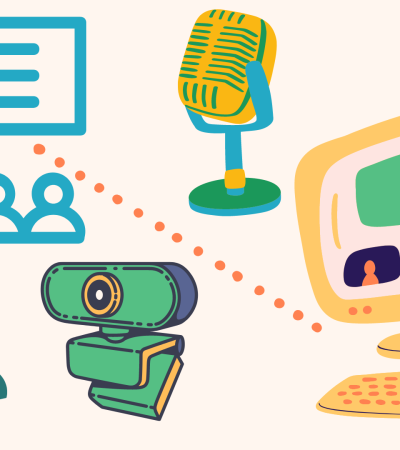Boston Public Library employs more than 500 staff members and presents more than 4,500 programs per year. To help these programs run smoothly, many different staff participate in their creation and execution — and that is doubly true for hybrid programs.
There are many logistical details to consider with hybrid programming, such as staff roles and responsibilities, registration, managing online and in-person audience engagement, and leveraging technology. In the webinar "A Step-By-Step Guide to Hybrid Programming," Boston Public Library Chief of Adult Library Services Gianna C. Gifford and Programs Librarian Kristin Motte walk us through some of their hybrid best practices.
Watch the webinar recording or read some key takeaways below.
Hello, hybrid!
Boston Public Library is fortunate enough to have a team of audio/visual experts who are integral to programs; they assist in a hands-on way for larger events and by consulting on smaller programs throughout the system. Following some initial bumps after returning to in-person programming after COVID-related closures, the library has equipment that works well for what they need and has developed a general format for larger speaker programs. Almost everything is flexible according to program needs, but it is helpful to have a formula to follow.
When planning a hybrid program, the goal is to ensure that participants on both ends (those in-person and those online) are receiving similar, high-quality experiences. For a smooth hybrid program, consider offering a walk-through of the space with your speaker or discussing details via Zoom so they understand how the program will work. You should also prepare any links that will be shared in the chat ahead of time for the virtual audience so you don't have to scramble to find them during the presentation. Finally, make sure to have a check-in with the entire team that is working on the program to make sure everyone knows their roles.
Maximizing audio and video
It is also important to consider AV logistics. This includes things like setting up cameras, mics and computers properly, sending out Zoom panelist links to staff working on the virtual side; queuing up the welcome slide, and ensuring that chat is working for virtual attendees.
Boston Public Library uses video lights and LED bricks for ample lighting. Ideally, the light should focus in front of the presenter and limit any light coming from behind them. Built-in laptop microphones should be avoided as they aren't the best quality; instead, try to use USB mics, such as the Snowball or the Blue Yeti.
As for the video, laptop cameras are fine as long as the location and angle are adjusted for the best view. The laptop can be elevated on a stand or pile of books to make sure the presenter is facing "eye-to-eye" with the audience. If possible, use USB webcams like a GoPro or cameras with an HDMI output to connect to a laptop with a capture card. Boston Public Library uses an Elgato HD60 S+ capture card to save screen recordings.
Finally, OBS (Open Broadcaster Software) can help you get a bit fancy with your hybrid programs. This free, downloadable, open-source program allows you to add your video sources (camera, application windows, desktop, etc.) to a "canvas" to send to Zoom or other platforms. You can have multiple canvases by creating "scenes" in OBS and transitioning between them. At Boston Public Library, a children's librarian often uses OBS for hybrid story time to switch between a livestream video of the book and a livestream video of her reading the book
Lessons learned
The landscape is different now than pre-March 2020, and our audiences are, too. Find the tools and processes that work for you — your patrons and library. This will likely take some experimentation. It's also important to know that you don’t have to go it alone! Partnering with other organizations can expand reach and opportunities.
See the full list of hybrid programming webinars and articles from this series.
Funding for this article has been provided by the National Endowment for the Humanities (NEH) as part of the American Rescue Plan: Humanities Organization Grant.



